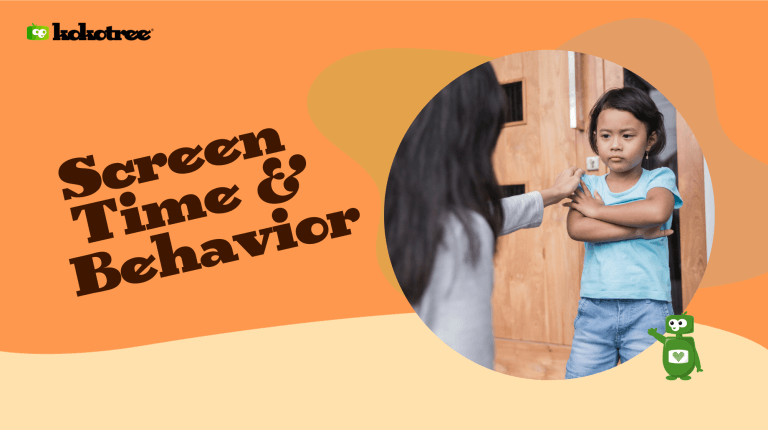

Are you worried about the impact of screen time on your toddlers’ and preschoolers’ behavior? Do you ever feel guilty when you use screens to keep your child entertained or calm? Well, you’re not alone! As a parent, we often use screens to distract our little ones, but we also wonder about the effects of screen time on their development.
In this blog post, we will help you understand the importance of managing your child’s screen time and its impact on their behavior. We will answer some of the most common questions parents have, such as how much screen time is OK for preschoolers and toddlers and what type of screen time is ideal for their age.
This blog post will serve as a helpful guide for parents who want to promote healthy screen time habits for their children. So, let’s dive in and learn about the effects of screen time on toddlers’ and preschoolers’ behavior!
Simply put, screen time refers to the amount of time your child spends in front of a screen, whether it be a TV, tablet, smartphone, or computer.
According to the American Academy of Pediatrics (AAP), children between the ages of 2 and 5 should have at most one hour of high-quality screen time per day. This means that the content they are watching or interacting with should be educational, engaging, and age-appropriate.
When it comes to screen time, not all content is created equal. For toddlers and preschoolers, the ideal screen time is educational and interactive and promotes creativity and socialization. This type of content includes educational apps, e-books, and online games that require children to solve problems and think critically.
As a parent, it is crucial to be mindful of the type of content your child interacts with on screens. Limiting screen time and choosing educational and engaging content can ensure that your child’s screen time is both fun and beneficial to their development.
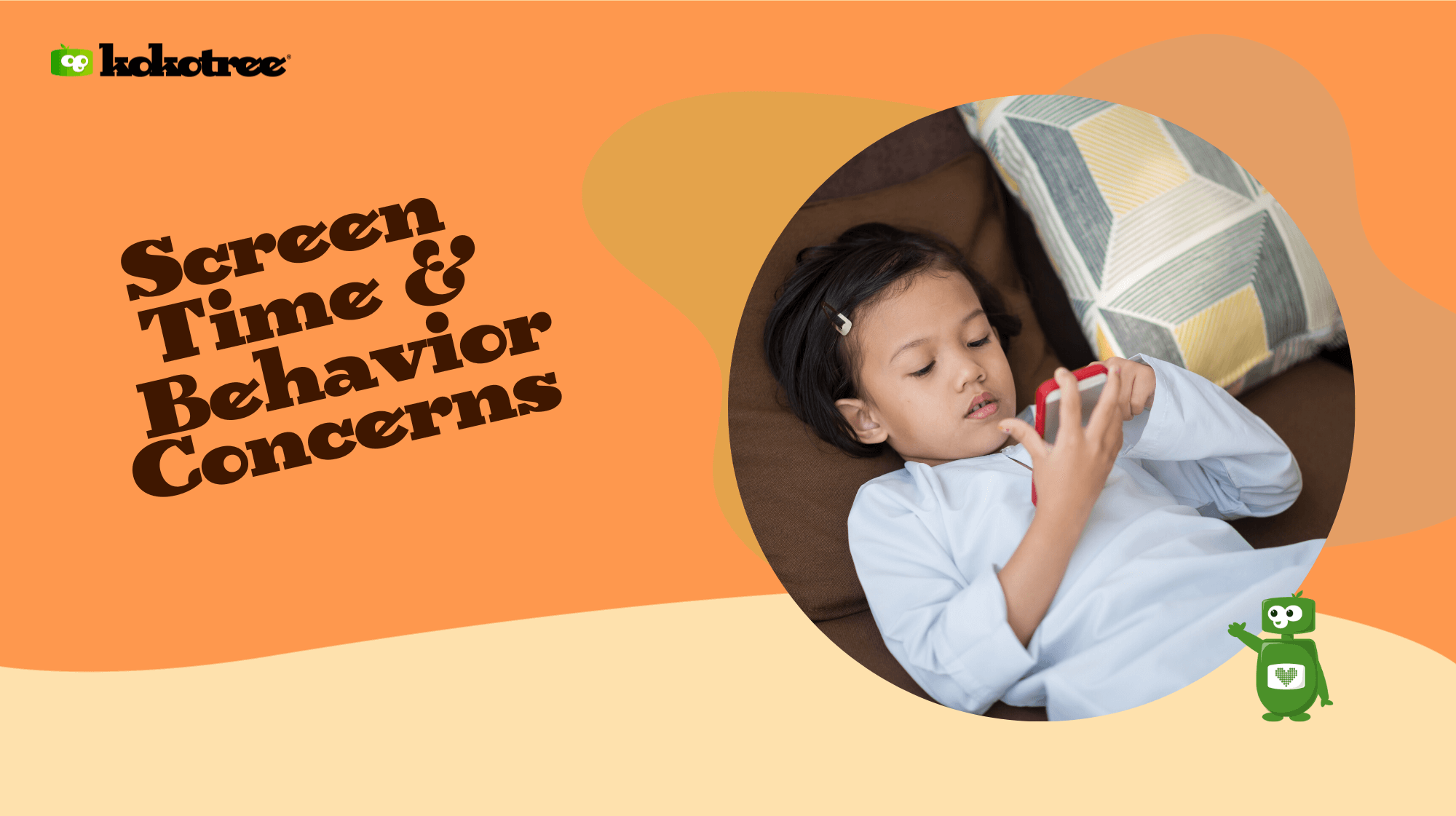
As a parent, you are probably familiar with “screen time.” It refers to the time your child spends in front of a screen, including TVs, tablets, smartphones, or computers. While screens can be entertaining and educational, excessive screen time can negatively affect your child’s development.
Spending too much time in front of a screen can lead to a sedentary lifestyle, contributing to obesity and poor posture. As parents, we want our children to be active and engaged in physical play to promote gross motor skills and coordination.
Screen time can interfere with your child’s cognitive development by reducing creativity, attention span, and language development. As parents, we want our children to do well academically. Studies have shown that excessive screen time can lead to lower academic performance and critical thinking skills.
Excessive screen time can also affect your child’s social development. It can impede the development of social skills, which are crucial for socialization and communication. As parents, we want our children to grow up to be kind, compassionate, and understanding individuals, so it’s important to consider the impact of screen time on their social development.
Recommendations: As a parent, you must be aware of the potential adverse effects of excessive screen time on your child’s physical, cognitive, and social development. While screens can be educational and entertaining, too much screen time can lead to a sedentary lifestyle, hinder cognitive development, and impede social skills. To promote your child’s development, we recommend limiting screen time and encouraging physical activity, creative play, and social interaction. Doing so can help your child grow up to be a well-rounded individual with strong physical, cognitive, and social skills.
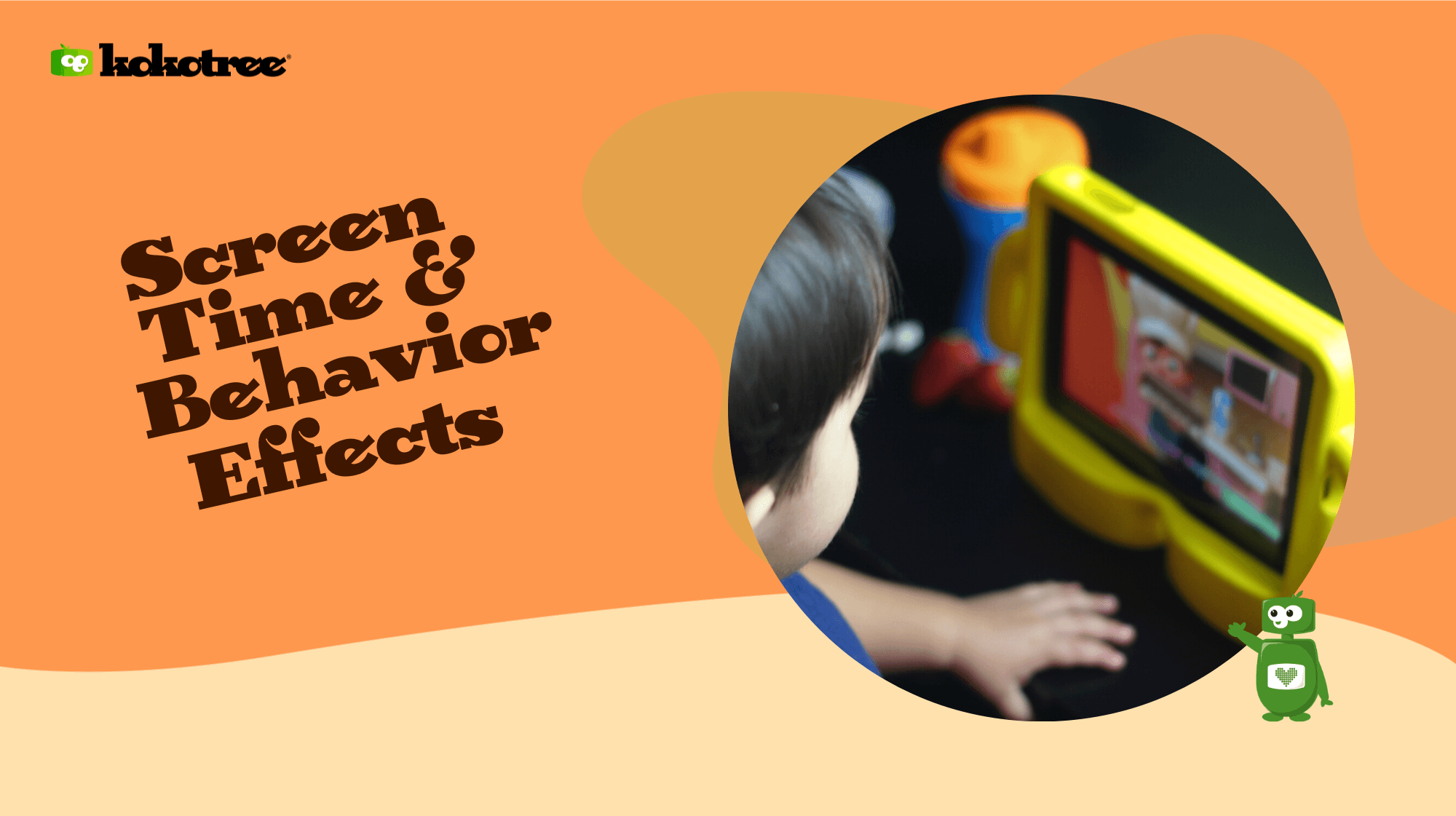
As a parent, you may wonder about the impact of excessive screen time on your child’s behavior, emotions, and cognitive development. Here are some common issues to be aware of:
Decreased creativity: Excessive screen time can lead to reduced creativity in children. This is often because screens provide a lot of stimulation without requiring much imagination.
Excessive screen time can significantly impact your child’s behavior, emotions, and cognitive development. As a parent, monitoring your child’s screen time and being mindful of the potential negative effects is essential. By limiting screen time and encouraging alternative activities, you can help promote your child’s healthy development and growth.
Recommendations: Excessive screen time can negatively affect your child’s behavior, emotions, and cognitive development. It can lead to issues such as aggression, irritability, attention and concentration problems, hyperactivity, impulsivity, and difficulty with self-regulation and emotional control. It can also cause emotional issues like anxiety, stress, decreased empathy, and depression, as well as cognitive issues such as reduced creativity, language impairment, difficulty with problem-solving and critical thinking, lack of curiosity, shortened attention span, and impaired memory and retention. As a parent, it’s essential to monitor your child’s screen time and limit it while encouraging alternative activities to promote your child’s healthy development and growth.
Parents need to establish clear guidelines and boundaries to promote healthy screen time habits and minimize the adverse effects of excessive screen time on young children. The American Academy of Pediatrics (AAP) provides some recommendations for parents to manage screen time for toddlers and preschoolers:
In addition to these recommendations, here are some strategies for limiting screen time and alternative activities to replace it:
Recommendations: To help your child develop healthy screen time habits, it’s crucial to establish clear guidelines and boundaries. The American Academy of Pediatrics recommends limiting screen time to one hour per day for children aged 2 to 5 years and avoiding digital media use for children younger than 18-24 months, except for video chatting. It’s also vital to co-view with your child, choose high-quality programming, and keep screens out of the child’s bedroom. In addition, establish a schedule and routine for screen time, use a timer or alarm to keep track of the time, and encourage your child to engage in alternative activities like playing with toys, reading books, or going outside. Remember to limit your own screen time and plan family activities that involve physical activity.
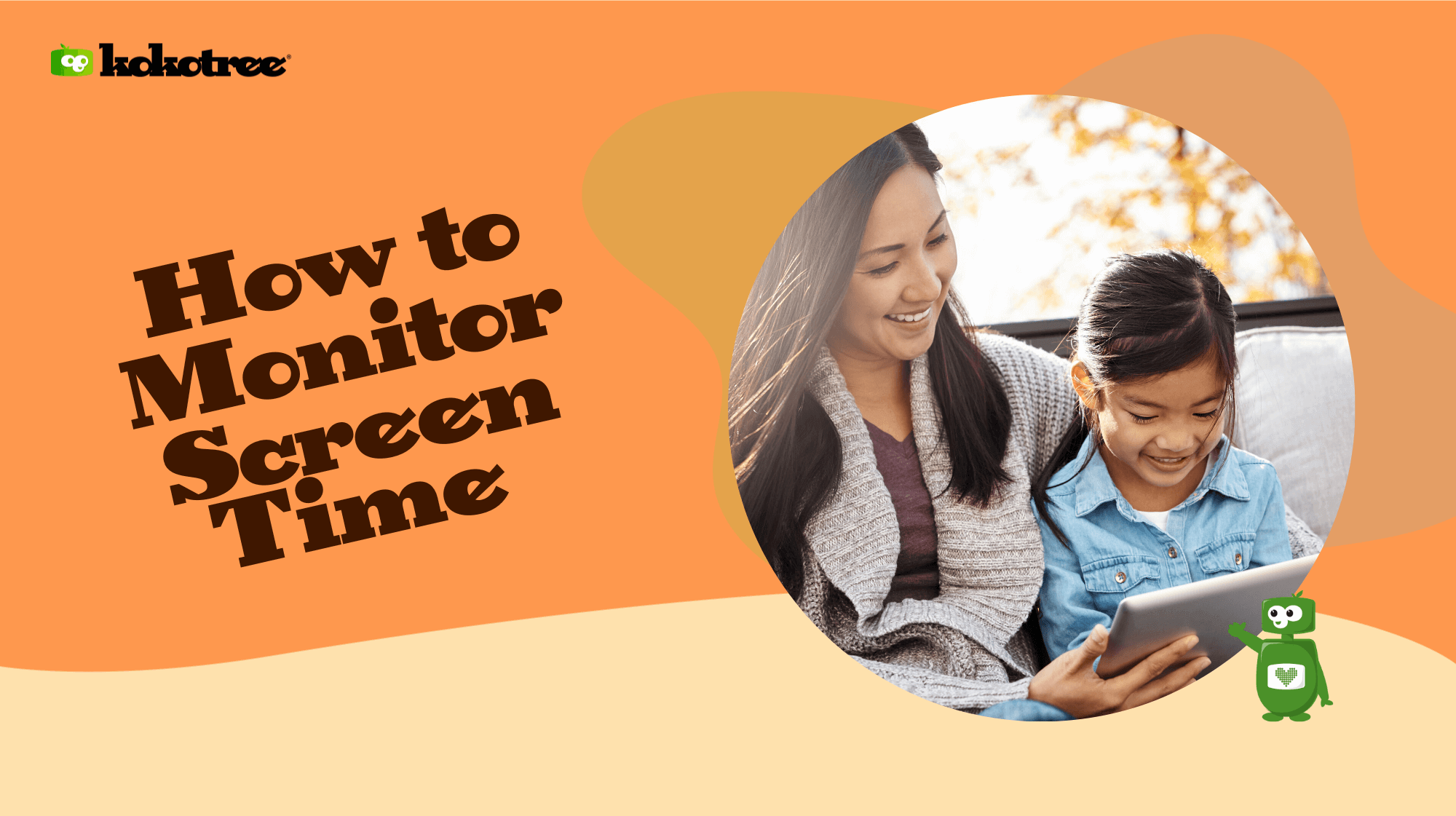
Monitoring your child’s behavior related to screen time is crucial to understand the effects of screen time and whether it’s negatively impacting your child’s development. Here are some ways to monitor your child’s behavior:
By monitoring your child’s behavior related to screen time and adjusting your guidelines and activities, you can help your child develop healthy screen time habits and minimize the negative effects of excessive screen time on their development.
Recommendations: To effectively manage your child’s screen time, it’s essential to monitor their behavior and ensure that they are meeting age-appropriate milestones. You can observe their behavior during and after screen time, keep track of the amount of time they spend on screens, and regularly evaluate their progress. By doing so, you can adjust your guidelines and activities to promote healthy screen time habits and minimize the adverse effects of excessive screen time on their development. Remember to communicate with caregivers and consult your child’s pediatrician if you have concerns about their behavior or action.
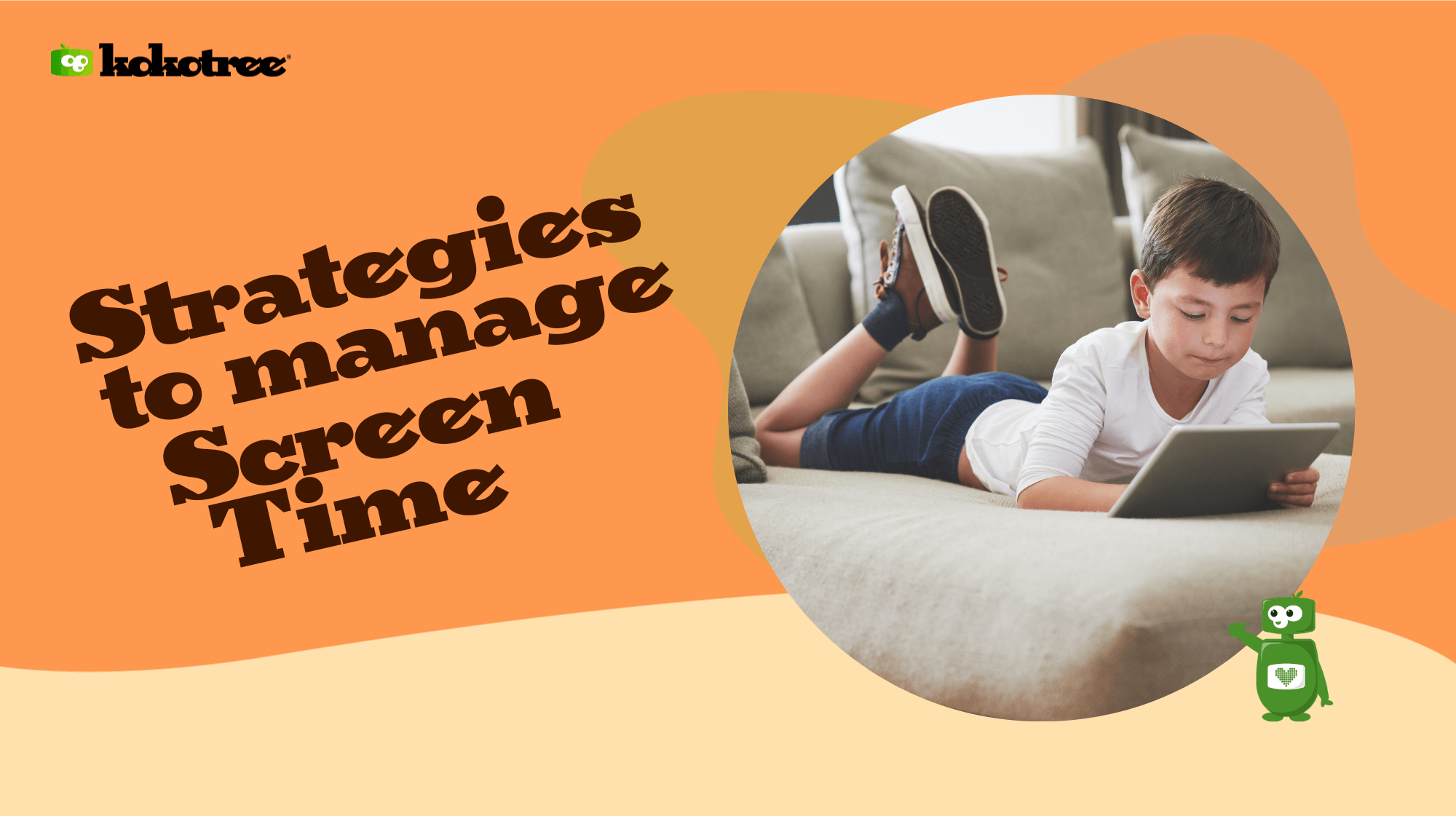
As a parent, you play a crucial role in helping your child manage screen time and its effects. Here are some strategies you can use to promote healthy screen time habits and behaviors:
Children learn by observing and imitating their parents’ behaviors, so it’s essential to set an excellent example regarding screen time. Here are some ways to model healthy screen time habits:
You can encourage your child to engage in physical, social, and creative activities to promote healthy behaviors and development. Here are some ways to promote healthy behavior patterns:
If your child is experiencing adverse effects from screen time, it’s essential to address any underlying emotional or behavioral issues. Here are some ways to address any underlying problems or concerns:
Early intervention and prevention are essential in managing screen time and its effects on children’s behavior and development. Here are some ways to emphasize the importance of early intervention and prevention:
Using these strategies, you can help your child develop healthy screen time habits and behaviors and minimize the harmful effects of excessive screen time on their development. Remember to approach screen time management with compassion, patience, and persistence.
Recommendations: As a parent, you have a crucial role in helping your child develop healthy screen time habits and behaviors. It’s important to model healthy screen time habits, such as setting boundaries and limits on your screen time and avoiding using screens during meals or other shared activities with your child. Encourage healthy behavior patterns by providing opportunities for physical activity, creative play, and peer interaction. Address any underlying issues or concerns contributing to your child’s resistance or negative effects of screen time, such as anxiety, stress, or attention issues. Early intervention and prevention are essential in managing screen time and its impact, so it’s important to communicate the potential negative effects and provide practical tips and resources for parents. Remember to approach screen time management with compassion, patience, and persistence, and seek additional help or support if needed.

Suppose your child is demonstrating lousy behavior due to excessive screen time. In that case, it’s essential to manage the situation effectively. Here are some recommendations for parents:
Ultimately, deciding to altogether remove screen time from your child will depend on your child’s age, the severity of the behavior, and your family’s values and priorities. It’s essential to balance promoting healthy screen time habits and ensuring that your child’s behavior is managed effectively. Remember to approach the situation with patience, understanding, and compassion.
Recommendations: If your child is showing bad behavior due to excessive screen time, there are steps you can take to manage the situation. Firstly, observe your child’s behavior and evaluate how much screen time they’re getting. Then, it may be necessary to significantly limit or remove screen time if their behavior is negatively impacted by it. Encourage alternative activities to replace screen time and establish a daily routine that includes specific times for activities. Keep track of your child’s progress and behavior over time and seek help from a pediatrician, therapist, or other professional if needed. Finding the right balance is vital, so approach the situation with patience, understanding, and compassion.
While the detrimental effects of screen time on children’s behavior have been discussed, parents should be mindful of other related issues. Excessive screen time may impair a child’s behavior, learning, and mental and physical health. This section will explore these issues and advise parents on managing them.
Excessive screen time can interfere with children’s sleep patterns and negatively impact their behavior, mood, and overall health. The blue light emitted by screens can suppress the production of melatonin, a hormone that regulates sleep, making it more difficult for children to fall asleep and stay asleep. Moreover, the screen content can overstimulate and disrupt the winding-down process, leading to difficulty falling asleep.

Get free parenting tips, news, updates, and content from Kokotree.
Although screens can be an excellent resource for learning, excessive screen time can impede cognitive development, language skills, attention span, and problem-solving abilities. Parents should select educational content carefully and limit screen time to appropriate levels.
Recent studies have found that excessive screen time is associated with depression in children due to social isolation and lack of physical activity. Parents should encourage social and physical activities and restrict screen time to avoid this. Monitoring your child’s mental health is crucial, and professional help should be sought if necessary.
Prolonged screen time, particularly during early development, can cause speech and language delays in young children. This is due to the need for more verbal communication and social interaction opportunities displaced by screen time.
Excessive screen time can result in various vision problems such as eye strain, dry eyes, and myopia due to prolonged screen viewing and blue light exposure.
Young children with more screen time are likely to experience impaired social development due to a lack of face-to-face interaction and socialization opportunities, leading to difficulty with social skills like sharing, taking turns, and cooperating with others.
Excessive screen time can decrease attention span and increase distractibility in young children, leading to difficulty focusing and learning. The overstimulation and fast pace of screen content can lead to a lack of sustained attention and poor concentration.
Overall, parents need to recognize the potentially detrimental effects of excessive screen time on their children, manage screen time, and encourage other healthy development activities.
In conclusion, screen time can adversely affect toddlers’ and preschoolers’ development, so it’s essential to understand these effects and take steps to manage them effectively. Early intervention and prevention are crucial to ensure that children develop healthy habits and behaviors and reach their full potential.
As parents, you play a critical role in promoting healthy screen time habits and managing your child’s behavior effectively. By establishing clear guidelines and boundaries, monitoring your child’s behavior, and using strategies to help your child manage screen time, you can minimize the harmful effects of excessive screen time on your child’s development.
Remember to seek the necessary resources and support, such as parenting classes or counseling, if you need help managing your child’s screen time or behavior. It’s essential to approach screen time management with compassion, patience, and persistence, as it may take time for your child to adjust to new behaviors and habits.
Overall, the importance of understanding the effects of screen time on toddlers and preschoolers, and the need for early intervention and prevention, cannot be overstated. With the right strategies, support, and guidance, you can help your child develop healthy habits and behaviors that will benefit them in the long term.
As a parent of a toddler or preschooler, you may have concerns about the impact of screen time on your child’s behavior. While screens can provide entertainment and educational value, excessive screen time can have adverse effects on behavior, such as increased irritability, restlessness, impulsivity, and difficulty with attention and concentration.
It’s important to understand screen time’s potential risks and benefits and establish clear guidelines and boundaries for your child’s screen time use. In this section, we’ll answer some common questions about screen time and behavior to help you make informed decisions about your child’s screen time use.
The American Academy of Pediatrics recommends that children between the ages of 2 and 5 should have no more than 1 hour of screen time per day.
Age-appropriate educational programs, such as those that teach letters, numbers, and basic skills, are generally considered appropriate for toddlers and preschoolers. However, it’s vital to ensure that screen time is balanced with other essential activities, such as outdoor play, creative play, and peer interaction.
Excessive screen time has been linked to adverse effects on behavior, such as aggression, irritability, hyperactivity, attention and concentration issues, and difficulty with emotional regulation and self-control.
Signs that your child may be experiencing negative effects from screen time can include increased irritability, restlessness, impulsivity, difficulty with attention and concentration, sleep disturbances, increased anxiety or stress, decreased ability to recognize or express emotions, and negative impact on self-esteem and self-worth.
You can establish clear guidelines and boundaries for screen time, monitor your child’s behavior and progress, provide alternative activities, such as physical activity and creative play, and seek help from professionals if necessary.
Suppose your child is experiencing significant negative effects from screen time. In that case, it may be necessary to limit or remove it altogether. However, providing alternative activities is crucial as seeking professional help if necessary.
You can set boundaries and limits on your screen time, avoid using screens during meals or shared activities, engage in alternative activities with your child, and explain why it’s important to limit screen time and engage in other activities.
You can encourage physical activity, creative play, and social interaction with peers, establish a consistent daily routine, use positive reinforcement to encourage compliance with screen time limits, and seek help from professionals if necessary.
You can observe your child’s behavior, keep track of the amount of screen time your child has, and evaluate your child’s progress over time.
You can use a timer or countdown to help your child transition from screen time to other activities, provide warnings in advance to minimize resistance or tantrums, and offer alternative activities that your child enjoys and can look forward to.
Some alternatives to screen time include physical activity, such as outdoor play, creative play, reading, and social interaction with peers.
While using screens as a reward for good behavior may seem like a good idea, it can actually be counterproductive, as it reinforces the idea that screen time is a desirable activity. It’s better to offer alternative rewards, such as praise or small treats.
Excessive screen time can disrupt sleep, as it can interfere with the production of melatonin, a hormone that helps regulate sleep.
While screens may temporarily distract a child who is upset, finding other strategies for managing emotions and promoting self-regulation, such as deep breathing, physical activity, or calming activities, is crucial.
You can explain to your child why it’s important to limit screen time and how it can benefit their physical, cognitive, and emotional development. You can also involve your child in alternative activities, such as outdoor play or creative play, to help them develop a sense of enjoyment and curiosity outside of screen time.
While educational screen time can be beneficial for your child’s development, it’s vital to ensure that it doesn’t replace other essential activities, such as creative play, physical activity, and peer interaction.
You can review the content of the screen time to ensure it’s age-appropriate, and use age-appropriate educational programs that teach basic skills, such as letters, numbers, and problem-solving.
While screen time can be addictive for some children, it’s important to note that addiction in toddlers and preschoolers is not a clinical diagnosis. However, excessive screen time can negatively affect behavior, such as irritability, restlessness, and impulsivity.
Excessive screen time in toddlers and preschoolers has been linked to potential long-term effects, such as decreased creativity, impaired language development, and difficulty with problem-solving and critical thinking.
It’s generally not recommended to use screens to calm a child during a tantrum. Instead, using other strategies, such as deep breathing or physical activity, is better to help your child manage their emotions and promote self-regulation.



